Roger WATERS CONCERT: The World As It Is
By Joe Lauria
Special to Consortium News
The show stays outside. The reality is inside the arena.
Roger Waters’ ongoing 40-city North American tour is an eviscerating attack on a pretend America, exposing the nation’s brutality at home and abroad.
In an elaborate production playing on stages across the continent, Waters rips the cover from ruling myths enforced through education and the media, myths he has been fighting his entire life.
He reaches back to the early years to include Pink Floyd songs that were warnings, written during the relatively free 1970s, which looked forward from where we were to where we were headed — the mess we’re in today.
The performance is a startling defense of victims of U.S. state violence, searingly portrayed in video and music: indigenous, homeless, working class and developing world people who have nothing to do with power and how it’s used against them.
Waters argues that elite impunity allows a managed population to be rendered comfortable in its numbness, becoming part of a wall of ignorance erected by the state, behind which it commits its crimes.
Waters smashes that wall.
The Performance
The concert opens with scenes of a bombed out urban landscape displayed on a massive, ten-sided video screen in a theater-in-the-round, with Waters below it on stage singing “Comfortably Numb.” Amongst the ruins, zombified pedestrians pass each other on the pavement.
The guitar solo from the recorded version is replaced by lamenting vocals, reminiscent of ‘The Great Gig in the Sky‘, Pink Floyd’s last song on Dark Side of the Moon. Onscreen, point-of-view camera angles place us on the ground as one of the crowd, trudging along to the slow rhythm in a dream-like state. This is what we’ve become.
The child is grownThe dream is goneI have become comfortably numb
If you entered the arena in that condition you will become uncomfortable before long.
Numbness sets in at the earliest age as Waters sings in “The Happiest Days of Our Lives”:
When we grew up and went to schoolThere were certain teachers who wouldHurt the children any way they couldBy pouring their derisionUpon anything we didAnd exposing every weaknessHowever carefully hidden by the kids
The visuals show we are no longer talking about the school yard.
That segues into “Another Brick in the Wall” demanding no need of thought control. On the video board above flashed words of indoctrination, “We Are Meant to Rule … And The Many Should Slave,” “Burn Books, Keep Them Hooked,” “Make Loans, Take Homes,” “Shop Until You Drop” and “Us Good, Them Evil” to inculcate the imperial mindset.
In the “Powers That Be,” Waters first introduces fascist iconography on the screen, leaving little doubt who he thinks those powers are. During this number the names of victims of police violence flash on the screen interspersed with graphic video of police killings. The question posed is: why do we tolerate this?
Ronald Reagan’s ghostly image then rises in red on the screen, uttering that some critics said “our views of foreign affairs would cause war. … We meant to change a nation and instead we changed a world,” which he calls, “the American Miracle.” The face of every subsequent president then appears, each labeled “War Criminal” with the charges against them. Under Joe Biden’s image: “Just getting started.”
Waters’ next number, “The Bar” is performed with video of the Lakota Sioux defending their land from the Dakota Access Pipeline and images of homeless people, weaving together both stories of dispossession.
“They are putting sanctions on the lady down the street, until she takes the hint and packs her bags and leaves,” Waters sings. “So from North Dakota, here’s a message to the man: would you kindly get the fuck off our land?”
“Sheep,” from the album Animals, a tribute to Orwell, indicts a population that allows the state to get away with murder.
What do you get for pretending the danger’s not real
Meek and obedient, you follow the leader
Down well trodden corridors into the valley of steel
What a surprise!
A look of terminal shock in your eyes
Now things are really what they seem
No, this is no bad dream
The lyrics continue in a tweet floating on the screen: “The Lord is my shepherd, I shall not want … He maketh me to hang on hooks in high places … He converteth me to lamb cutlets, for lo, he hath great power and great hunger.” The first act ended with an inflated-sheep drone circulating the arena.
The second act begins with a drone pig floating above the crowd. One side says “Fuck the poor.” The other: “Steal from the poor, Give to the rich.”
In the edgiest number, Waters then appears on stage playing the role of a fascist dictator, whom he ridicules with right arm salutes. To the song “In the Flesh,” banners hang from the rafters with the symbol of crossed hammers replacing the swastika. It’s satire and a warning.
During “Run Like Hell,” Waters displays “Collateral Murder” on the vast video board, the music stopping when the Apache Helicopters “light them all up.”
“What the fuck was that?” the screen reads.
“It was video footage from a US Army helicopter gunship over Baghdad. Fuck me, who did they kill? Two Reuters cameramen. Was anyone court-martialed? No. Wow! Where did the footage come from? It was leaked by a very courageous US soldier, Chelsea Manning to Julian Assange, an equally courageous Australian publisher.”
“Fuck Warmongers. Fuck Drones. Fuck Your Guns. Fuck Colonialism. Fuck Occupation.”
It’s hard to get a dozen people to show up at an Assange protest in Washington, so to hear packed arenas in the United States cheering for Chelsea Manning and Julian Assange was somewhat startling, given how smeared, or ignored, they are by the establishment and its media.
Clearly, there are many Americans who understand what’s at stake. How many will show up in front of the Department of Justice in Washington this Saturday to surround the building in solidarity with the encirclement of Parliament in London?
Waters was now singing “Deja Vu”:
Waters next takes on consumerism in “Is This The Life we Really Want?” with watches, credit cards, designer shoes and bottles of Coke floating on screen, suddenly interspersed with F-16s and U.S. soldiers firing at you, and police beating more people. Waters asks are we just as dumb as ants to not realize the pain we inflict on others?
The root of the nightmare is the next of Pink Floyd’s biggest hits, “Money,” replete with dancing pigs in suits clutching their loot.
The imagery accompanying “Us and Them” in the next number left no doubt who “Us” are: the privileged West, and “Them”: the developing world, victims of “Us.” Regimented men in suits walking in file to work give way to images of innocent civilians whose faces are framed in surveillance photographs as armed drones appear over the horizon. The soothing melody and rhythm are jarring against the disturbing lyrics and images.
Saxophonist Seamus Blake’s performance in both “Money” and “Us and Them” outdoes that on the Dark Side of the Moon recorded version.
Waters tells the audience the nuclear doomsday clock is set at 100 seconds to midnight, and then to the sound of a ticking clock he begins his 1982 “Two Suns in the Sunset.” Set to chilling, animated video of a trucker running his route through a peaceful countryside, the driver, and then an entire city, is suddenly engulfed in the blast.
This Is Not a Drill ends with the band marching off stage with a beating drum to a battle that seems never won.
In an Age of Renewed Censorship
Julian Assange and WikiLeaks, whom Waters ardently supports, have done more than anyone in this century to reveal how the world really is. Waters has taken the essence of WikiLeaks‘ exposés and set them to film and music written years before WikiLeaks existed.
That Waters did is testament to the sophistication of the messages that envelop Americans, making it difficult for them to face the fact that the U.S. is not enforcing democracy at home or spreading it abroad, but rather spreading death and destruction in pursuit of elite interests.
The Nobel Prize acceptance speech of Harold Pinter, the late British playwright, came to mind while experiencing Waters’ concert:
“My contention here is that the US crimes … have only been superficially recorded, let alone documented, let alone acknowledged, let alone recognised as crimes at all. … the United States’ actions throughout the world made it clear that it had concluded it had carte blanche to do what it liked….
It never happened. Nothing ever happened. Even while it was happening it wasn’t happening.
It didn’t matter. It was of no interest
The crimes of the United States have been systematic, constant, vicious, remorseless, but very few people have actually talked about them. You have to hand it to America. It has exercised a quite clinical manipulation of power worldwide while masquerading as a force for universal good. It’s a brilliant, even witty, highly successful act of hypnosis.”
Roger Waters is correcting the record: It certainly has happened and keeps happening.
A Cycle of Repression
Waters’ North American tour, which started in Pittsburgh on July 6 and ends in Mexico City Oct. 15, pushes the boundaries of what is officially acceptable at a time when the U.S.’s cyclical history of repressing free speech (from John Adams’ and Woodrow Wilson’s sedition acts to McCarthyism) is back with a vengeance.
As an urgent reminder of this, Assange supporters have set up tables at the arenas to explain the publisher’s plight. An exhausted Waters showed up at noon on the night after his D.C. engagement on the street outside the Department of Justice to speak in Assange’s defense.
Assange exposed government officials, using their own documents and video evidence. Now he wastes away in a London dungeon ticketed to an Alexandria, Virginia courtroom, charged with espionage and facing up to 175 years.
Waters himself has been included on a Ukrainian kill list for daring to oppose the enforced narrative of the war. His performance of this concert scheduled in Krakow, Poland next April was canceled by the venue after pressure from a local politician who objected to Water’s open letter sent to the wife of Ukrainian President Volodymyr Zelensky, which supported an end to the war, lest we blow ourselves to bits.
He may have literally dodged a bullet in a country bordering Ukraine.
Waters’ long-time activism against war stemmed from his father’s killing in the Second World War, and his grandfather’s in the First. When Waters is not on stage or in a studio he’s speaking on webcasts, radio, television and at rallies against injustice. He also generously supports causes and independent media, such as the Consortium for Independent Journalism.
A Source of Energy
One sometimes wonders how an artist can perform the same show night after night, delivering the same lines and the same songs, with the same energy and inspiration. Waters, who turned 79 last month, told activist and radio host Randy Credico that it comes from cutting sugar from his diet.
I’ve seen him repeat his extraordinarily energetic performance this summer three times: in Washington, Raleigh, N.C. and New York City. I think his energy might also derive from reaching new audiences each night who may not have heard his message before.
Waters told Credico that he sees the arena as an extended pub, a place where “like-minded” people can come together. But there are people who aren’t prepared for the experience. Some have been seen walking out of arenas, back into the fantasy of American benevolence.
There is perhaps no greater issue in the United States than for its people to see the nation as it is, not as the schools and media would have them see it.
Waters opened at least one man’s eyes. An unsigned review of the concert in the Music Enthusiast says:
“Boston is notoriously liberal and so the message might have resonated better. But I wouldn’t assume that the entire audience was aligned and that a good percentage weren’t buying his message and were just digging the music.
That said, afterward my son and I grabbed a beer at a bar across the street from the Garden. A guy there asked me what I thought and I told him it was awesome. He told me he was ex-military but that Waters’ show really made him think about what’s really going on in the world and about The Powers that Be.”
Waters has added several European cities to the tour next spring. These are the remaining dates and ticket information for This Is Not a Drill.
Performers: Guitarists Jonathan Wilson and Dave Kilminster; drummer Joey Waronker; guitarist and bassist Gus Seyffert; keyboardist and guitarist Jon Carin; organist Robert Walter; saxophonist Seamus Blake and backing singers Amanda Belair and Shanay Johnson; bass, vocals and piano Roger Waters.
Joe Lauria is editor-in-chief of Consortium News and a former U.N. correspondent for The Wall Street Journal, Boston Globe, and numerous other newspapers, including The Montreal Gazette, the London Daily Mail and The Star of Johannesburg. He was an investigative reporter for the Sunday Times of London, a financial reporter for Bloomberg News and began his professional work as a 19-year old stringer for The New York Times. He can be reached at joelauria@consortiumnews.com and followed on Twitter @unjoe
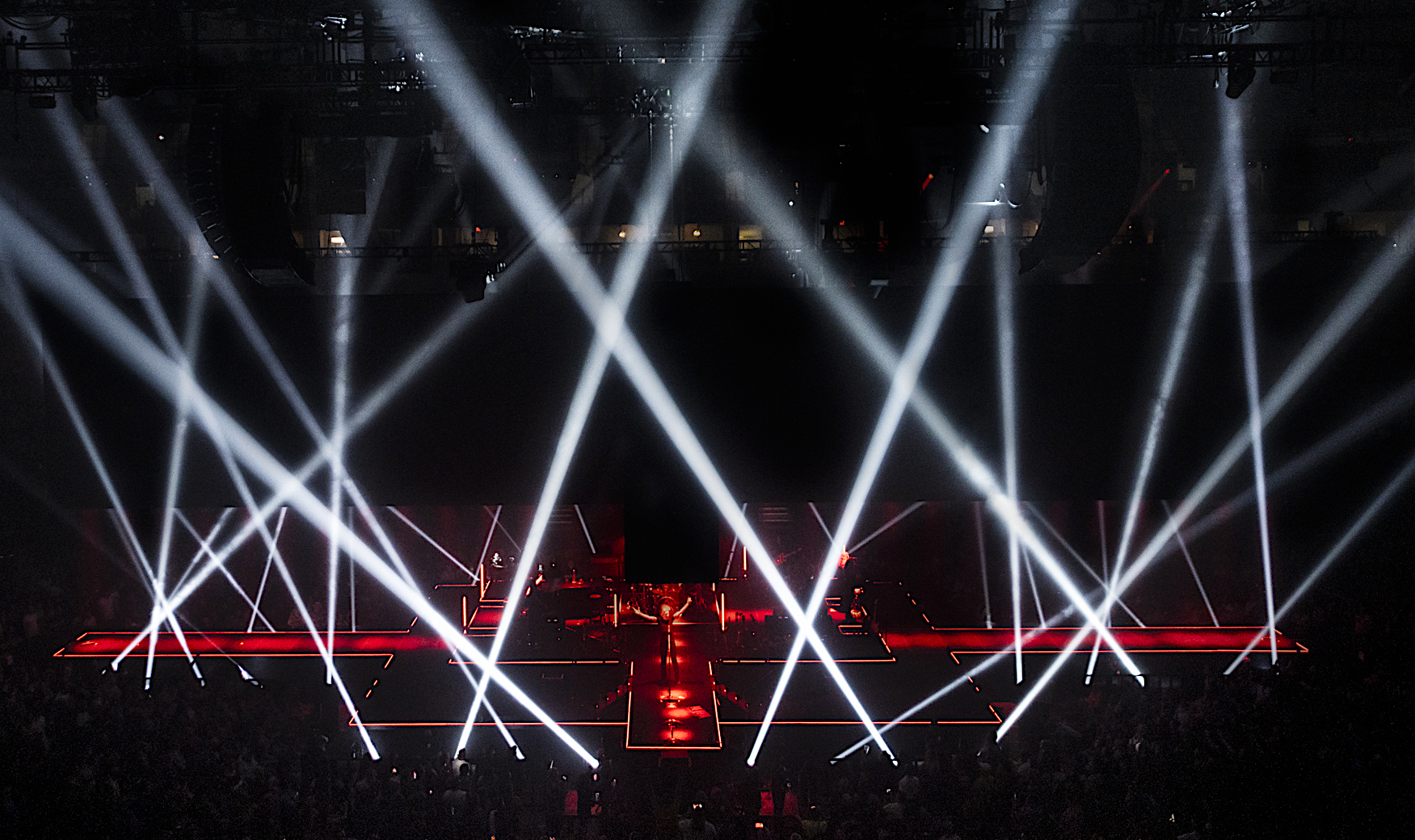

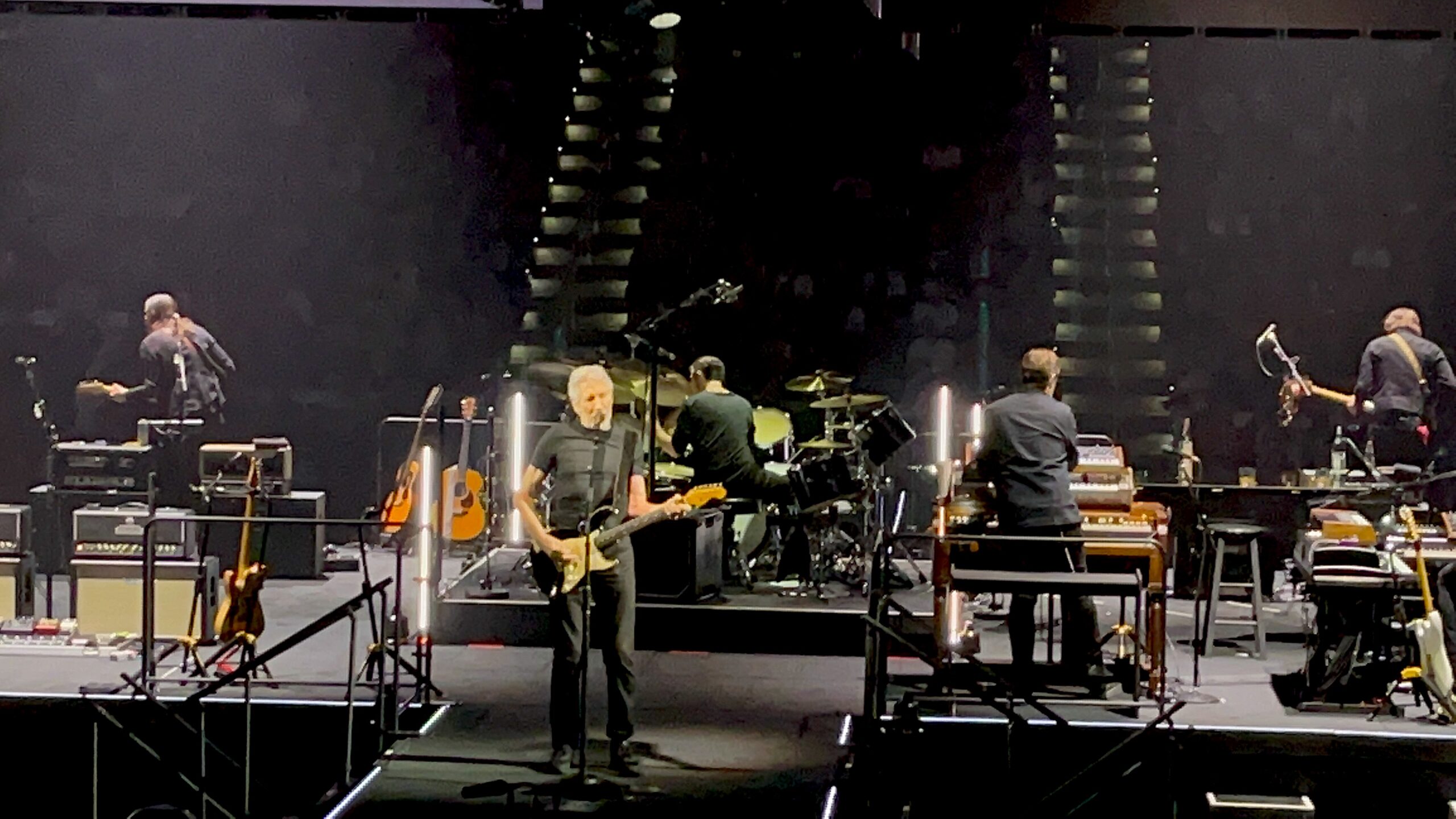
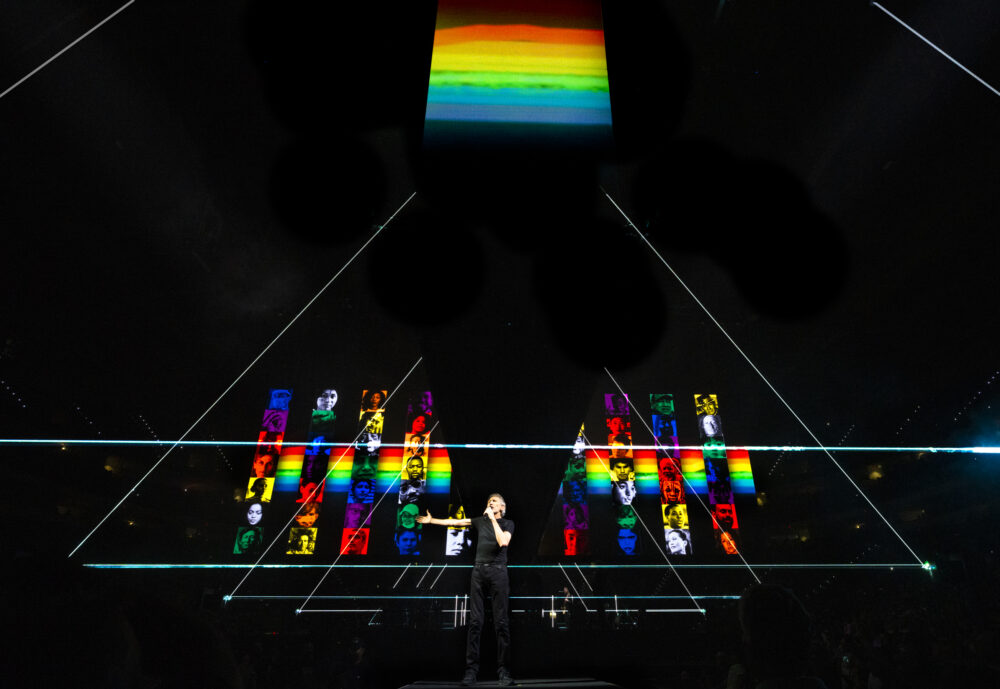


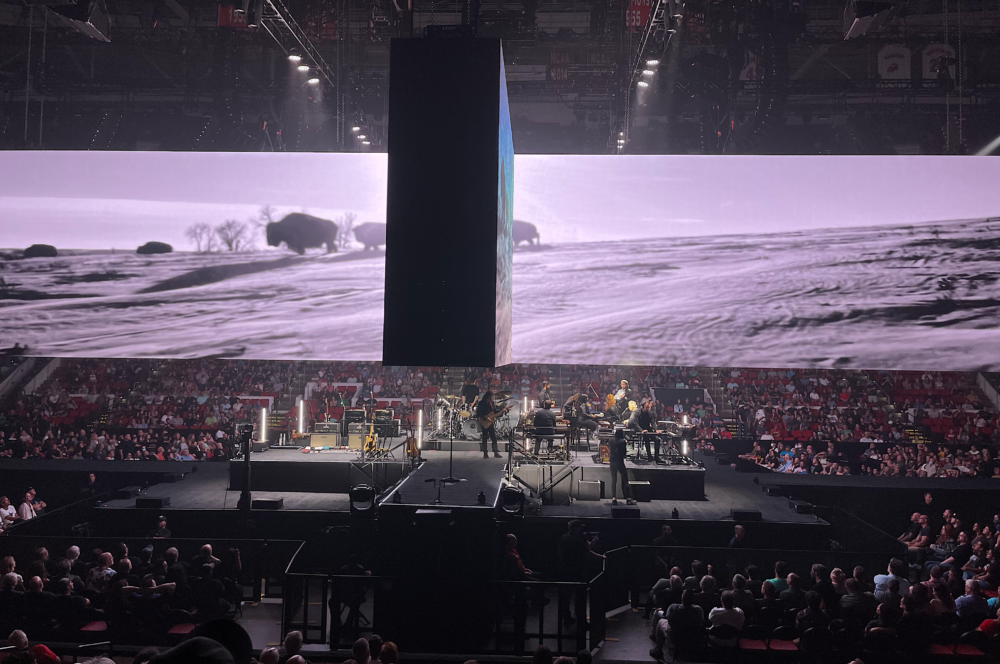

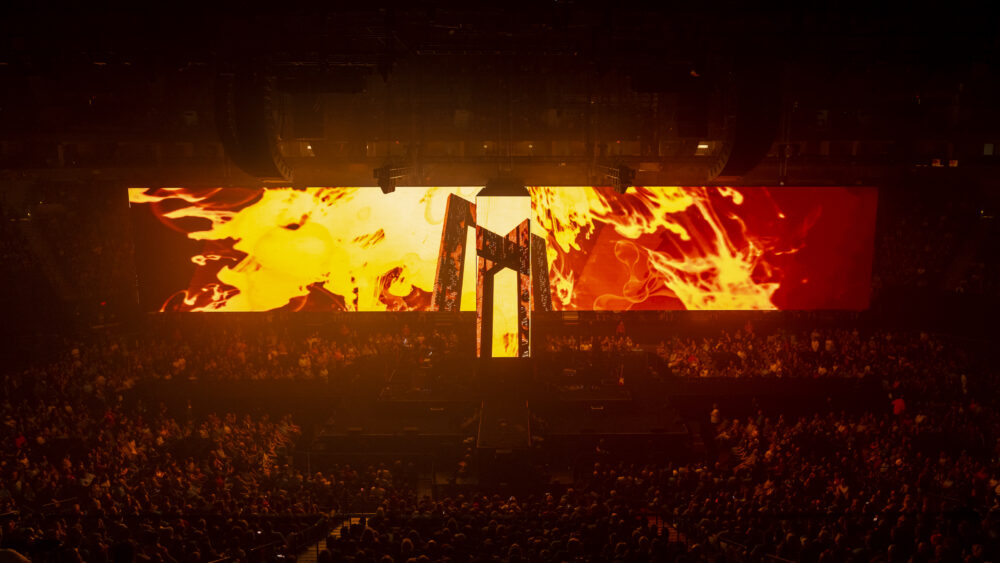
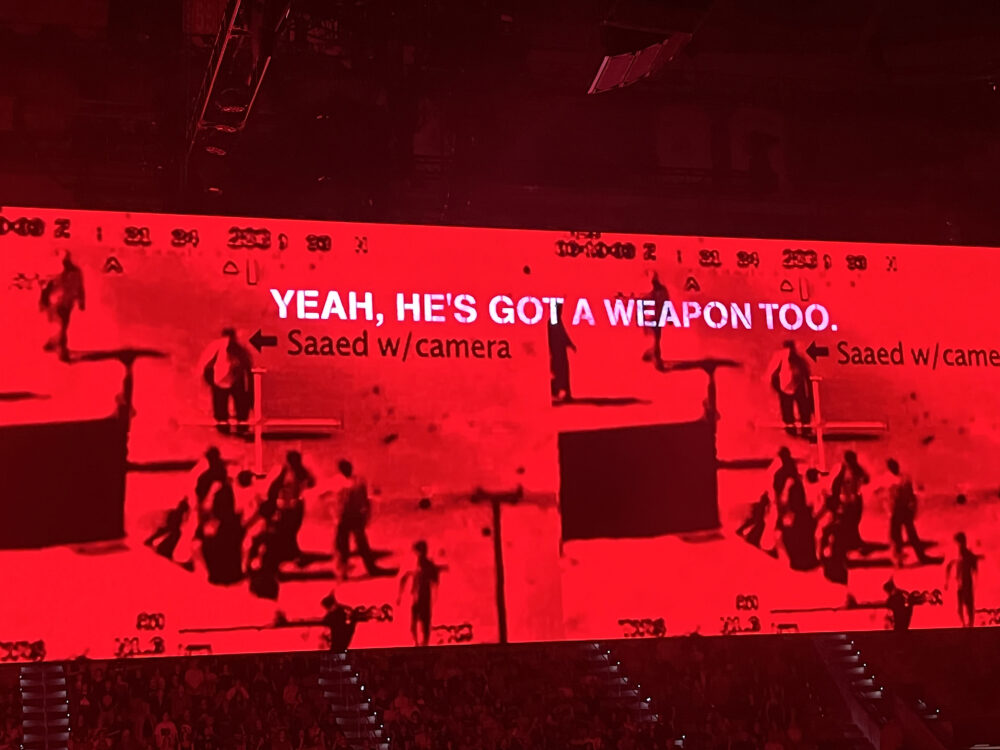

Comments
Post a Comment